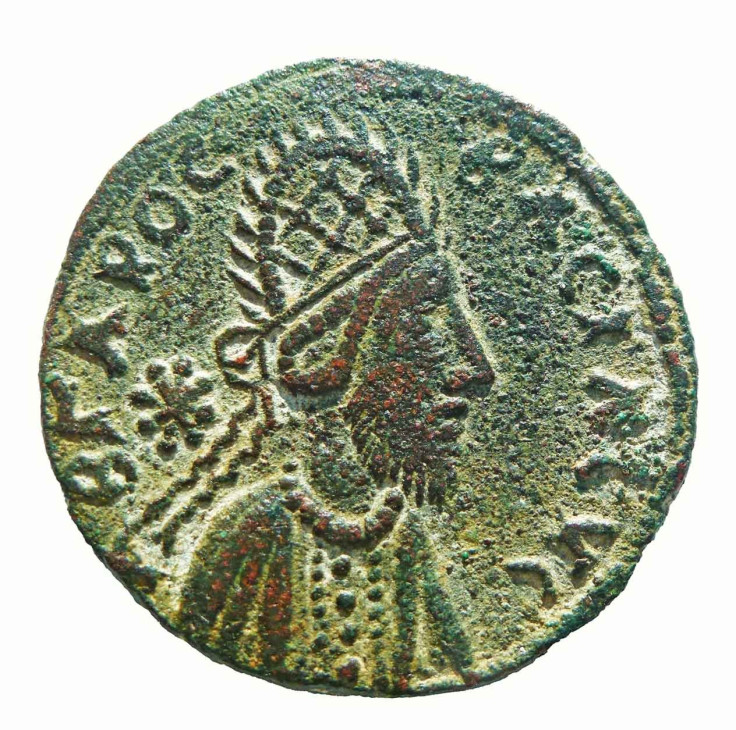Historical analysis of coin said to bear true image of Christ: 'Wildly irresponsible' and 'crackers'
The thesis is described as being as wacky as claims that aliens built the pyramids.
A widely reported claim that a 1st Century coin has been discovered showing the true likeness of Jesus Christ as a warrior and King of Edessa has been demolished by historians of religion.
The coin is owned by author Ralph Ellis, who said that it shows Jesus depicted as a 'warrior king' and leader of Edessa, in present-day Turkey. He details the theory in a book to be published later this week, Jesus: King of Edessa.
The coin shows a figure in profile wearing a headdress that he likens to a crown of thorns.
"That's a traditional crown of the Edessan kings – a plated crown of thorns. We don't know the significance of the thorns," Ellis told IBTimes UK.
"That Jesus was a warrior king came through strongly in the gospel, like in Luke 22:36 when he tells people to go out and buy swords. Even within the gospels you can see this hint about the warrior king rather a prince of peace."
Ellis, who is not affiliated with a university, acknowledged that his theory was "controversial" and that he had not received support from academics.
However, religious historians have said that the theory is not just off-the-wall but irresponsible.
"It's a theory that's so wacky it's completely beyond the realms of scholarly debate," said Francesca Stavrakopoulou, professor of Hebrew Bible and ancient religion at the University of Exeter.
Challenges to the traditional historical interpretations of the texts and artefacts associated with Jesus are welcomed by scholars, Stavrakopoulou said.
"I'm really open to various theories that want to look underneath and think again about the claims we make in scholarship. I haven't got anything against non-academics questioning the assumptions that scholars make.
"I'm not one of these scholars who sits in an ivory tower and says that untrained people can't have good ideas. But this seems to be wildly irresponsible, both about history and conventional scholarship, but also in terms of these historical figures themselves.

"It's on a par with people who claim that aliens built the pyramids."
Simon Gathercole, reader in New Testament studies at the University of Cambridge, said that there was a long tradition of valued amateur contributions to history, but that Ellis' thesis was "completely crackers".
"There's no evidence from any sources, Christian or non-Christian, that say Jesus ever even went to Edessa. There are legends form the 4th Century that Jesus wrote to the king of Edessa, but there's nothing from the time.
"All the evidence from the time indicate that Jesus conducted his ministry in Galilea and Judea, in modern-day Israel, not in Mesopotamia. This isn't one of those things where it's controversial and there's evidence on both sides. It's not one of those things where it might be right or might not be. It's just not."
© Copyright IBTimes 2025. All rights reserved.






















